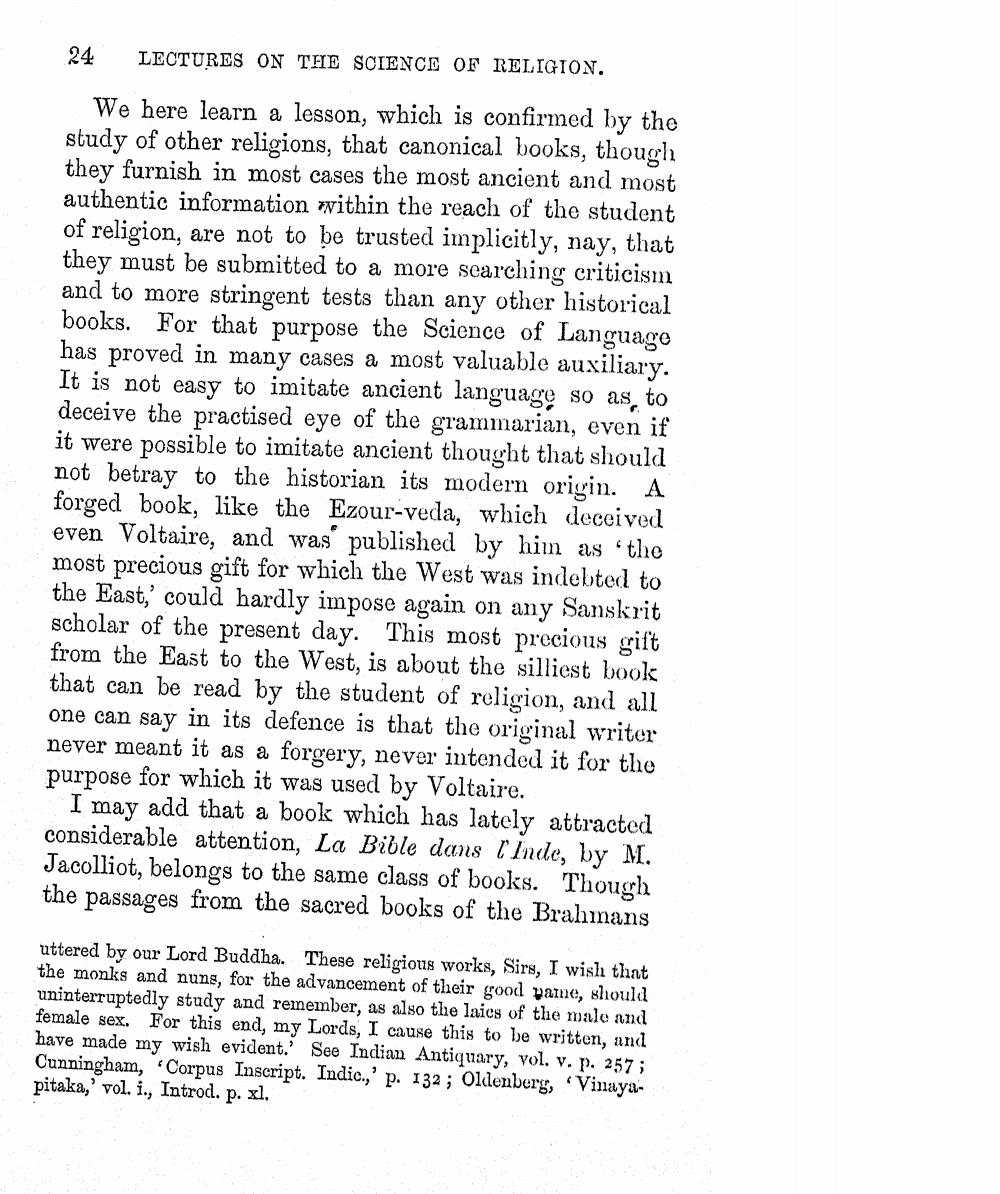________________
24
LECTURES ON THE SCIENCE OF RELIGION.
We here learn a lesson, which is confirmed by the study of other religions, that canonical books, though they furnish in most cases the most ancient and most authentic information within the reach of the student of religion, are not to be trusted implicitly, nay, that they must be submitted to a more searching criticism and to more stringent tests than any other historical books. For that purpose the Science of Language has proved in many cases a most valuable auxiliary. It is not easy to imitate ancient language so as to deceive the practised eye of the grammarian, even if it were possible to imitate ancient thought that should not betray to the historian its modern origin. A forged book, like the Ezour-veda, which deceived even Voltaire, and was published by him as the most precious gift for which the West was indebted to the East,' could hardly impose again on any Sanskrit scholar of the present day. This most precious gift from the East to the West, is about the silliest book that can be read by the student of religion, and all one can say in its defence is that the original writer never meant it as a forgery, never intended it for the purpose for which it was used by Voltaire.
I may add that a book which has lately attracted considerable attention, La Bible dans l'Inde, by M. Jacolliot, belongs to the same class of books. Though the passages from the sacred books of the Brahmans
uttered by our Lord Buddha. These religious works, Sirs, I wish that the monks and nuns, for the advancement of their good pame, should uninterruptedly study and remember, as also the laics of the male and female sex. For this end, my Lords, I cause this to be written, and have made my wish evident.' See Indian Antiquary, vol. v. p. 257; Cunningham, Corpus Inscript. Indic.,' p. 132; Oldenberg, Vinayapitaka,' vol. i., Introd. p. xl.




